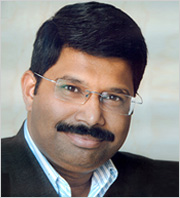
With Group Discussion round going on at Top B schools, MBAUniverse .com brings to you a series of real account of GD, PI, WAT round at Top B School for admission in the session 2014-16.
This article describes the real account of GD round held for admission to one of the top B-schools. Name of the B-school is not disclosed for obvious reasons and the names of the candidates have been changed to protect their identity. The GD have been evaluated by the B school Admission Panel and have been provided marks and Feedback/comments on each individual candidate on the basis of their participation in the GD round.
Given below is the realistic account of Group Discussion with 7 Candidates for admission to one of the top Business school.
India gained more at the WTO DOHA Round
No. of candidates -7
Time allotted-18 minutes
Composition of the group- 2 girls, 5 boys
Candidates have scored between 85 to 91 percentile
Name of the Institute not disclosed and names of the candidates have been changed.
Moderator - Good morning friends. The topic for today’s Group Discussion is- ‘India gained more at the WTO DOHA Round’. You have one minute to think before starting the discussion. The observers will neither interfere nor participate in the discussion.
(After the pause)
Akshat- (In a composed voice and moving his eyes straight towards the fellow group members)- Friends, I am Akshat and would like to begin the discussion since time is short. Let us understand what the Doha is round.
The Doha Round was officially launched at the WTO’s Fourth Ministerial Conference in Doha, Qatar, in November 2001. It is the latest round of trade negotiations among the WTO membership. Its aim is to achieve major reform of the international trading system through the introduction of lower trade barriers and revised trade rules.
It’s the ninth round since the Second World War and the first since the WTO inherited the multilateral trading system in 1995. It aims to produce the first major overhaul of the system in the 21st Century.
Smitha- Akshat, why are you defining the terms while the topic requires focusing on gains of India in Doha round? But you haven’t spoken anything on it and the time is passing by. (Others also joined)
Akshat (smiling, raising his hand and voice) - Yes Smitha, I am coming to it. It is always better to know the topic well before we speak on it. There may be some of our friends, who may not know about Doha. (Two-three candidates nod and Akshat resumes)
Friends, India was the one to raise the flag against elimination of support subsidies to poor farmers. Although it was against WTO rules, support subsidies to poor farmers got safeguards and as such will continue. India won an indefinite waiver, good until a permanent solution can be reached. Besides, India gains global leadership by getting a crucial poor-rich country imbalance corrected on a multilateral forum.
(Other candidates are impressed and look at him with appreciation)
Ratna (clearing her throat) – Friends, .India is one of the few developing countries with the size and influence to attract the attention of the world when it raises the flag. The prospect of new markets in the growing Indian middle-class is making the US and the EU much more sensitive to India’s trade concerns.
While Indian producers have been unable to get any advantage in the global markets, India now finds that its domestic market is being threatened by cheap imports. Besides textiles and clothing and agriculture, in other areas of India's export interest there are problems of tariff peaks and tariff escalations. In Doha, ministers also approved a decision on how to address the problems developing countries face in implementing the current WTO agreements.
Shyam(appears more confused)- Well, I am not very much convinced with the type of topic but request all of you to listen to me. (A few candidates smile but Akshat gives him an encouraging gesture) As I know thereare two key principles of DOHA round- decisions are by consensus, which means everyone has to be persuaded before any deal can be struck, and all the members have to agree.
(Every one claps and moderator smiles)
Smitha- OK friends now it’s my turn to speak.In fact, the Doha Ministerial Declaration provided the mandate for the negotiations, including on agriculture, services and environment , which began earlier. But the gains that were promised to Indian low cost producers of agricultural commodities during the Uruguay Round negotiations have not been realised. Developed countries have been against the continuation of the market distorting subsidies in Agriculture.
(A few raise eyebrows whether she was defining gains or losses)
Nishith- Smitha, you may be right to some extent. In fact, India had her way to retain the Food Security Law. Although it may push India’s minimum support prices above WTO limits, but interim mechanism will provide safeguards till WTO rules are corrected. New rules for public stock holding of foods in developing countries for food security will be formed.
(After taking a deep breath) Besides, India has got the opportunity in the form of Agreement on Trade Facilitation which might boost India’s exports. The trade facilitation measures will give almost all exports of the least developed countries tariff-free and quota-free access to the market in developed countries.
Smitha (hurriedly speaks) - Let me add that India was the one to prepare the first agreement in the nine Ministerials held after the Doha Round.
Manohar (moving his head sideways begins to speak in a grim voice) - The WTO Multilateral Trade Negotiations in Bali almost failed. Since a complete consensus of 159 member nations is required, it appeared to be wastage of time, energy and money. The negotiations were plagued with irreconcilable differences among members from the outset and have stalled several times. The Bali package covers only a very small fraction of the 40 areas laid out originally in the Doha Declaration. It is quite unclear if and when any of the remaining areas will be resolved.
Saurabh- (Looking at Manohar) Yes I agree with you. The agreed points are against the rules which govern trade among member nations in goods, services and intellectual property. They are the foundation of the present world economic order. (Stops abruptly as finds it difficult to speak further).
Manohar(Making a second entry)- The economists fear that the food security measure may actually increase food prices in the stock holding countries and lead to dumping of excess stocks in other countries.
Akshat (finding that only a few seconds are left) – There is no doubt that Doha yielded a modest outcome, it could have provided clear guidelines and time-lines for progress on some of the more contentious implementation issues.
Moderator – (signals to stop) - O.K. friends, time for discussion round is over. Thank you for active participation.
___________________________________________________________________________
Expert feedback - The group overall actively participated.
Akshat – Very well defined the topic in simple language. Placed good arguments in his three entries. Aptly replied the objection raised by Smitha. Has leadership quality as well as team spirit. Top rated in the group. Recommended
Smitha – Not a good listener. Has interrupting nature. Has some knowledge on the topic and made some valid points although not very good. Not recommended
Ratna- Polite but firm. Has ability to present her ideas in a coherent manner. Although made single entry but that was good. Rated 4th in the group. Recommended if more than three are required from the group.
Shyam – Seems more confused. Has little knowledge. Doesn’t show leadership qualities. Not recommended.
Nishith– Has clear idea of the topic and speaks well. Rated 2nd in the group. Recommended.
Manohar- Made two effective entries with ideas not expressed by anybody else. Good listener as well as good speaker. Rated 3rd and recommended.
Saurabh- A follower made some points but was not sure of them. Not recommended.
Our earlier articles on LIVE GD Round for MBA Admission 2014:
Group Discussion: What happens in a GD round of Top B schools for Admission 2014?
Real account of GD: 'FDI in retail is a boon for India'
Real Account of GD: 'Activism is necessary for survival of democracy'
Real Account of GD: 'Business lobbying be made legal in India'
To score high marks in GD PI WAT process of B schools for Admission 2014, Click here
Also read articles on Personal Interview:
Personal Interview at IMT Ghaziabad: What happens at the Personal interview round?
IMI Delhi: Real account of Personal Interview at top B school for MBA Admissions 2014
Real account of PI round: Why a 93 %iler couldn't enter top B-school?
Real account of MBA Admission Interview: Prakriti Goyal, CAT 98 %
Stay tuned to MBAUniverse.com for more news and updates on LIVE GD Round at Top B schools



























